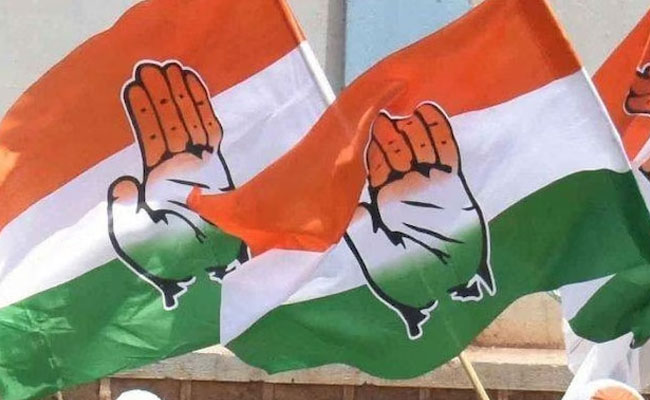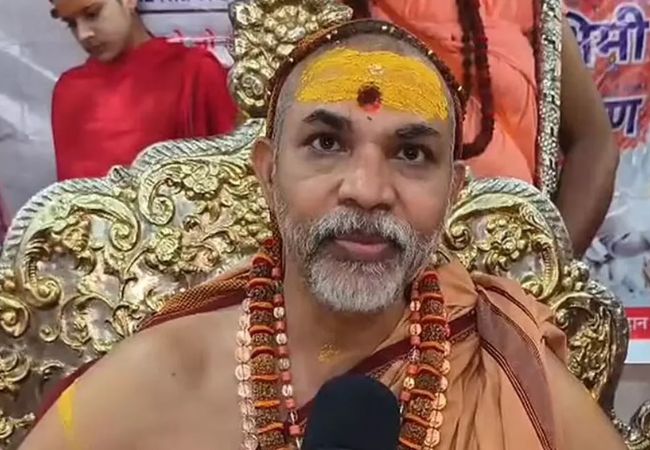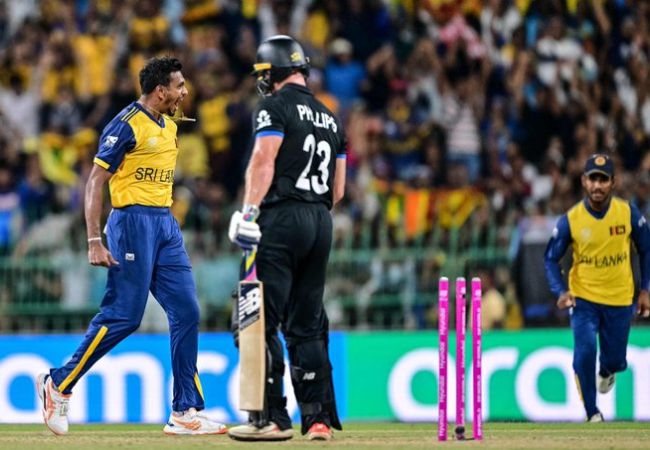Ahmedabad (PTI): Ahead of the 2024 elections, the Congress has formed teams of leaders to assess its strength and rebuild the organisation across 26 Lok Sabha seats in Gujarat, a party functionary said on Tuesday.
In the 2019 general elections, the Congress was whitewashed with BJP winning all 26 seats in the home state of Prime Minister Narendra Modi and Union Home Minister Amit Shah. The opposition party won only 17 seats out of 182 in the 2022 assembly elections which saw BJP retaining its bastion with a historic mandate.
Congress spokesperson Manish Doshi said teams comprising senior as well as young leaders have been allocated the responsibility of a set of Lok Sabha seats.
"They are tasked with holding meetings with local leaders in Lok Sabha constituencies to get a sense of the existing political and social dynamics and the party's position as part of poll preparations," he said.
State party president Shaktisinh Gohil will look after the seats of Bharuch and Chhota Udepur, both having a significant tribal population, while the Congress legislative party leader Amit Chavda will oversee Kheda, Bhavnagar and Surendranagar constituencies.
Former state Congress presidents Bharatsinh Solanki, Arjun Modhwadia, Siddharth Patel, and Jagdish Thakor, and ex-legislative party leaders Paresh Dhanani and Sukhram Rathwa have also been allocated the responsibility of different seats.
"The experienced leaders have been teamed up with the party's working presidents. The report prepared by them will be taken up for discussion in meetings with the party's general secretary-in-charge of Gujarat Mukul Wasnik to chalk out the party's future course of action for the elections," Doshi said.
These teams will meet local leaders in the respective Lok Sabha seats assigned to them, including former candidates of Congress in LS and assembly polls, contestants and winners of local body polls.
"They will discuss various aspects of the given Lok Sabha seat, including the social dynamics, geographical location, the situation on the ground, and opinion and suggestions of local leaders regarding the party's past performance, and how it can be improved among other factors," Doshi added.
Let the Truth be known. If you read VB and like VB, please be a VB Supporter and Help us deliver the Truth to one and all.
Lucknow (PTI): The Uttar Pradesh Congress on Wednesday staged a statewide protest demanding a fair and transparent inquiry into the FIR lodged against Swami Avimukteshwaranand Saraswati and those who filed the complaint against him.
In a statement issued here, the party said memorandums addressed to Prime Minister Narendra Modi were submitted through district magistrates in all districts of the state.
Uttar Pradesh Congress spokesperson Manish Hindvi told PTI that the memorandums were handed over through the district administration in all 75 districts.
In the memorandum, the party alleged that Saraswati and his disciples were "unnecessarily harassed and humiliated" by police on the occasion of Amavasya and were prevented from taking a ritual bath (at the Magh Mela). It further alleged that some disciples were manhandled and taken to a police station.
The memorandum also claimed that an FIR was later registered against Saraswati, his disciple Swami Mukundanand Brahmachari and several unidentified persons in a sexual harassment case. It termed the case a "conspiracy" aimed at tarnishing the seer's reputation.
Citing Articles 25 and 26 of the Constitution, the memorandum stated that these provisions guarantee religious freedom and the right of religious denominations to manage their own affairs.
It described the position of shankaracharya held by Saraswati as "one of the highest spiritual posts in Sanatan tradition" and alleged that the entire episode appeared to have been "orchestrated in a planned manner".
"We request that the background of the persons who got the FIR registered be investigated in a transparent manner by a retired high court judge and strict action be taken against them," the memorandum said.
It also sought a "fair and transparent probe" into the allegations levelled against Saraswati so that the truth could be established.
Earlier, Uttar Pradesh Congress president Ajay Rai had told reporters in Varanasi after meeting Saraswati that the party stood firmly with him.
The Congress said it would continue to press for an impartial inquiry into the entire episode.
On February 21, an FIR was lodged in Prayagraj against Saraswati and his disciple Mukundanand Brahmachari on charges of sexually abusing two persons, including a minor, over the past year at a gurukul and religious congregations, including the recently concluded Magh Mela.
Days after he was booked, Saraswati had said on Monday that he would not oppose his arrest and asserted that the "fabricated story" would be exposed sooner or later.
At a press conference on Wednesday, Saraswati alleged that criminals rule in Uttar Pradesh, level allegations and influence investigations, as he denied having any contact with the two persons for whose alleged sexual abuse he has been booked.



_vb_77.jpeg)
_vb_00.jpeg)
